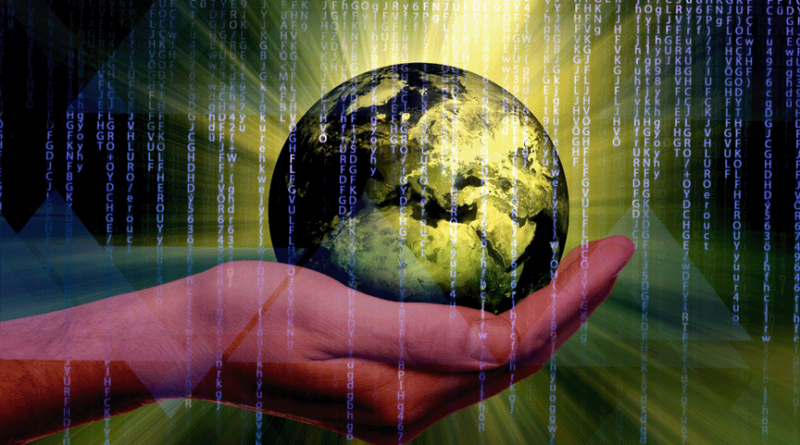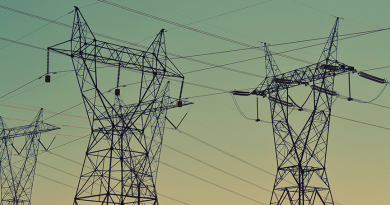Unprecedented opportunities
Elena Verdolini is a climate economist. She is Professor of Political Economy at the Law Department, University of Brescia, and Senior Scientist at the RFF-CMCC European Institute on Economics and the Environment of the Euro-Mediterranean Centre on Climate Change
Both digitalization and decarbonisation represent unprecedented opportunities for today’s economies because they could bring about important co-benefits in terms of jobs, competitive and overall wellbeing.
The digital revolution is a largely ungoverned mega-trend that is predominantly fuelled by disruptive market forces and consumer preferences. While public support plays a crucial role in the development of digital technologies, the discovery and ubiquitous application of sensors, the internet of things, artificial intelligence, digital devices, cloud services and digital business model is promoted by private entrepreneurs and early technology adopters.
The ‘just ecological transition’ is often cited as grand challenge of our times, motivated by the need to address imbalances emerging from market forces alone, namely pressure on natural systems beyond what is feasible within planetary boundaries and the unequal distribution of resources both across and within countries and regions. While reducing our exposure climate risks, such transition should bring about better jobs and increase the quality of life.
Up to recently, discussions around the digital revolution and the just ecological transition were carried out separately, in different ministries at the national level and by different actors at the sectoral and local level.
Yet, there are strong reasons to argue that the digital transformation and the just ecological transition should be addressed jointly by firms, governments, and citizens.
First and foremost, a very heterogeneous body of research shows that there are strong mutual interactions between these two processes. Most notably, not addressing climate challenges implies that the digital world of the future will be characterized by high climate risks, and that economic wellbeing will be jeopardized.
Furthermore, the way in which the digital revolution will unfold strongly affects the prospects of a just ecological transition. The direction of this impact is in fact not clear.
One the one hand, digital technologies could increase emissions if they increase overall energy demand or generate digital waste; they could also increase inequality if their benefits accrue only to a minority of workers and of the overall population, leaving others behind. If this were the case, achieving a just ecological transition will be harder and costlier.
On the other hand, digital technologies could contribute to emission reductions through energy and material efficiency, by favouring demand-side management practices in energy use and by promoting citizens’ education and participation in decision processes. If this were the case, the just ecological transition could be achieved faster and at lower costs than currently foreseen.
A second, subtler but equally strong, rationale for the joint consideration of these transformations lies in the asymmetry in their relation, which is due to their different nature and pace. The digital revolution progresses at extremely fast speed and is predominantly driven by market forces; digital innovation happens in several directions and at different scales.
The prospects of future economic growth and wellbeing strongly depend on the joint governance of both the digital and the ecological transitions
The ecological and sustainability transitions are extremely slow processes, in which consensus building plays a critical role to move forward. It thus appears that digitalization has the potential to strongly affect the just ecologic transition in the short term, while the opposite is only marginally true, if at all.
Importantly, as digitalization rapidly changes our economies and societies, agreed-upon processes and targets to achieve the sustainability transition may become obsolete or irrelevant very fast.
Both transitions will require significant proactive agency and policy support to achieve societal goals, but the nature and extent of this support is different. Deep decarbonization pathways should factor in the disruptive role of digital technologies.
Similarly, governing digitalization is a necessary requirement to ensure that digital technologies contribute to emission reductions and to the achievement of other sustainable development goals.
Policy portfolios in support of the twin ecological and digital transition need to account for, and balance, these fundamental differences. Only through the joint consideration of the barriers and enablers of these two major transformations can technologies and market forces be harnessed to ensure that the benefits accrue to all citizens, firms and workers.
If we fail in this endeavour, we will have to face significant negative environmental and social consequences, while economics gains will accrue to a small share of the world’s population, very concentrated both within and across countries.
Hence, the prospects of future economic growth and wellbeing strongly depend on the joint governance of both the digital and the ecological transitions.
Governance aspects become paramount to ensure that digital technologies can become multipliers of sustainable change and that societal co-benefits—ie. positive labour market outcomes, increased competitiveness, access to products and services—are achieved for all.
Both digitalization and decarbonization should unfold, in a mutually supportive way, and without impairing other ancillary benefits such as economic growth and inclusion.
A fundamental question then needs to be addressed: what are the necessary buildings blocks of a strategy to ensure that digital technological developments and breakthroughs offer a win-win solution to the potential tension arising between decarbonisation processes and economic growth in the context of a just transition?
There are many answers to this question, depending on local, regional, and national specificities, conditions and institutional settings. Yet, six important ingredients should not be missing:
1. The collection of key indicators at various scales (local, regional, national) measuring the progress of digitalization, its benefit and barriers, and allowing benchmarking.
2. Further research on the mechanisms governing digital low-carbon pathways towards sustainability and the specific conditions under which digitalization will act as an enabler towards sustainability in different regions, countries and sectors.
3. Strong government commitment to a just ecological and digital transition in the form of support for job creation; targeted public investments in low-carbon, digital and sustainable infrastructure; the promotion of changes in human behaviour towards reducing resource and emissions footprints.
4. Training programs to upskill and reskill workers, ensuring they can transition to more sustainable jobs, and benefit from the opportunities arising from the twin digital and ecological transitions.
5. Enhanced social safety nets to support those who may find it particularly difficult to adjust to new technologies and transition towards different jobs.
6. Just and inclusive processes of citizen and stakeholder engagement to co-design policies and measures and to generate a shared, strong and actionable vision of what a just transition looks like.
This article is based on ETUI working paper 2023/01: Elena Verdolini, “Interlinkages between the just ecological transition and the digital transformation,” Working paper 2023/01. ETUI, The European Trade Union Institute, (accessed February 18, 2023).Part of this research was supported by the European Research Council (ERC) under the European Union’s Horizon 2020 research and innovation programme, project 2D4D (grant agreement No 853487).




